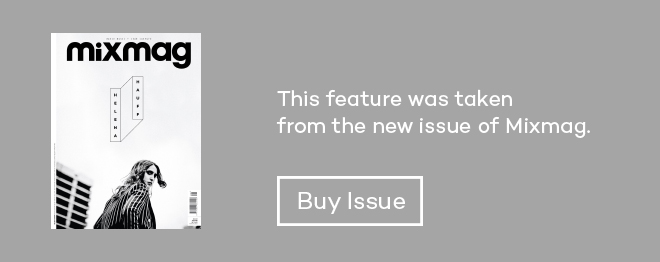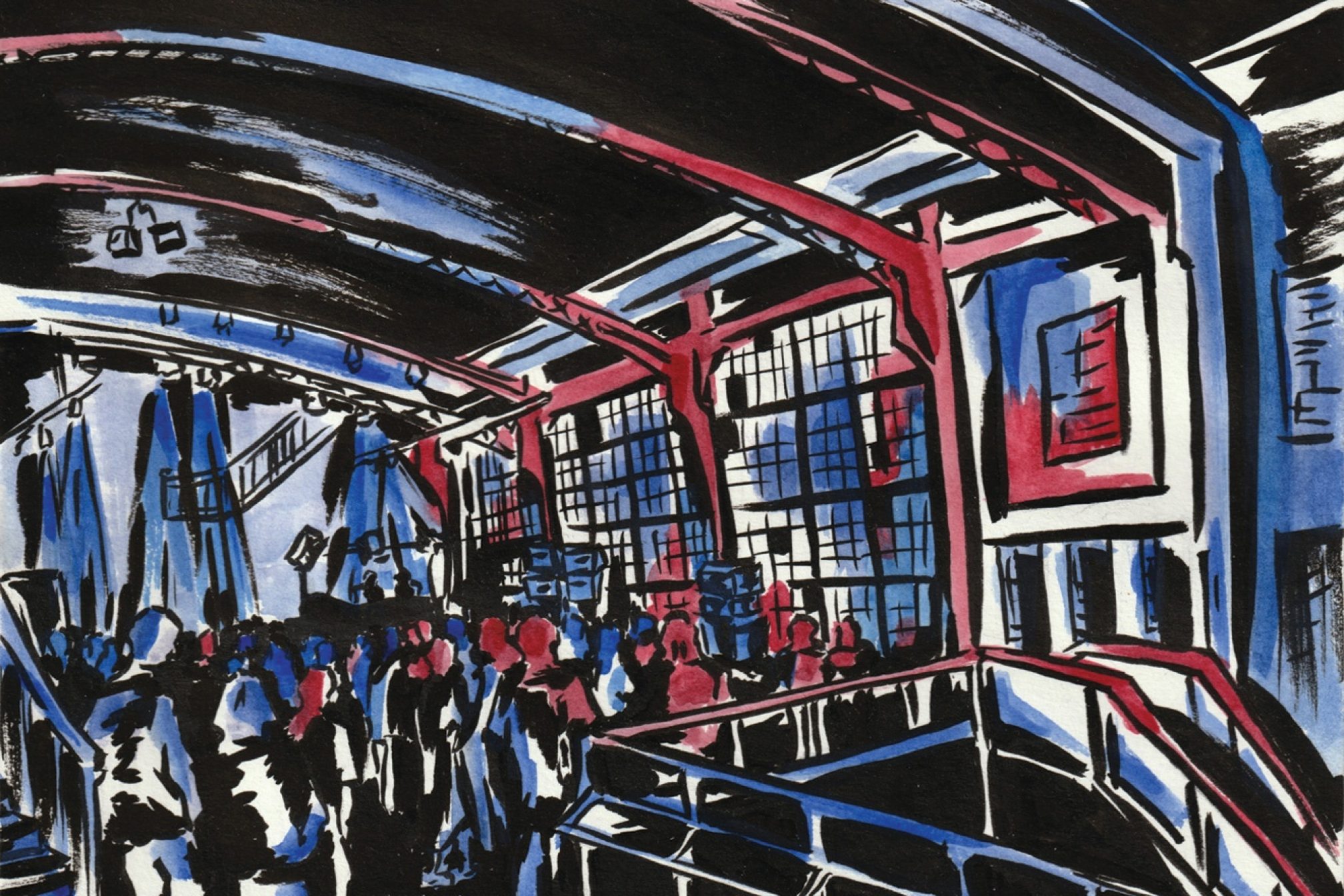 Features
Features
An artist has made sketches of Berlin's best nightclubs
No cameras allowed
Berlin’s clubs are notorious for their ‘no photos’ policy – so artist and writer Whitney Wei took her sketchbook to capture the essence of the city’s great venues.
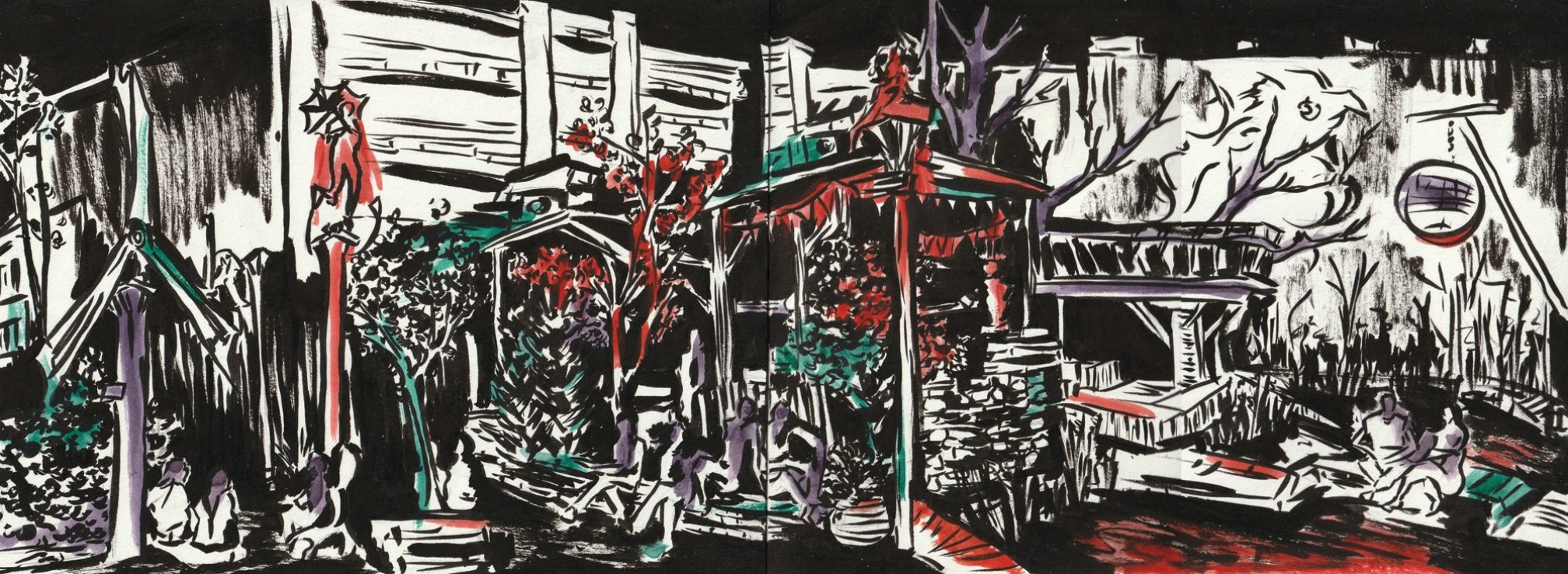
Sisyphos, Hauptstraße 15
Many of Berlin’s clubs feature some sort of outdoor wooden jungle gym. The garden at Sisyphos is one of the city’s most extravagant, a ramshackle micro-village containing a sauna, pizza stand, café and mini-spätkauf (cornershop) that encourages patrons to stretch a day party into a weekend sojourn. Sisyphos demanded a panoramic illustration, and I chose to highlight its more idyllic features: a raft floating on a man-made pond, two gazebos with festive bunting and flowering saplings among tall metal sculptures, all splashed with multicoloured lights at dusk.
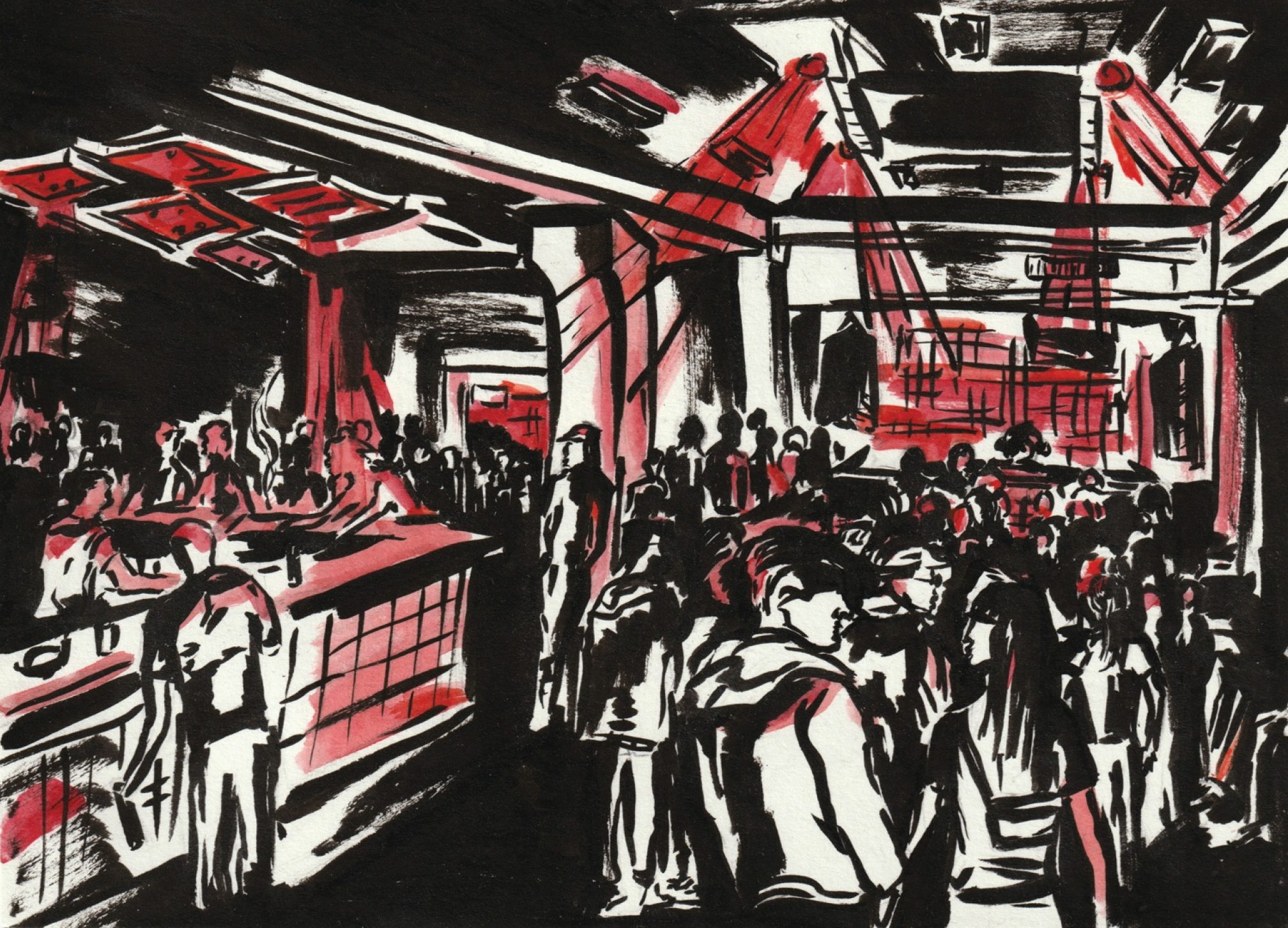
Ohm, kÖpenicker straße 70
After a friend told me that OHM used to be Tresor’s bathroom, the venue’s signature tiled walls became more than just a key aesthetic feature to express in my drawing, but also an important visual indicator of the club’s cheeky history.Of the five Berlin clubs represented, OHM is my favorite. With its oddly placed columns and penchant for rouge lighting, the club recalls the intimacy and simplicity of the underground Brooklyn venues (RIP Palisades!) where I first fell in love with nightlife.
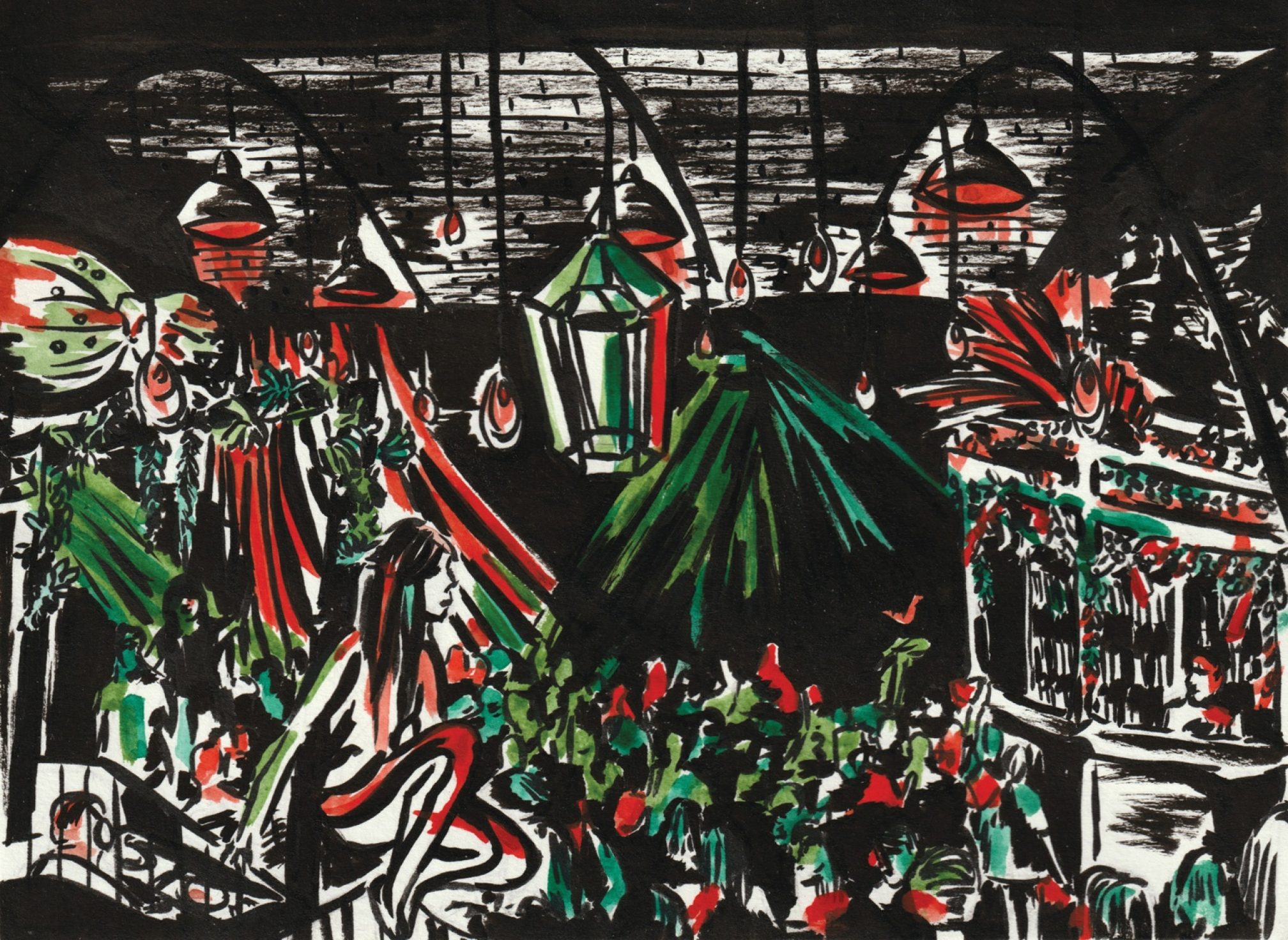
The contemporary incarnation of Berlin’s legendary Bar 25 is Kater Blau, a kaleidoscopic circus rave. In the outdoor Der Acid Bogen room I sketched from the top of the stadium seating circling its carnivalesque dance pit. Squinting through smoke, strobes and swaying asses, I focused on the floral garlands laced around the DJ booth and wooden bar, the cat snout peeking above the stage and the dangling light fixtures flashing around a huge revolving lantern. A woman dancing on the railing would occasionally hop over to peer at my sketchbook.
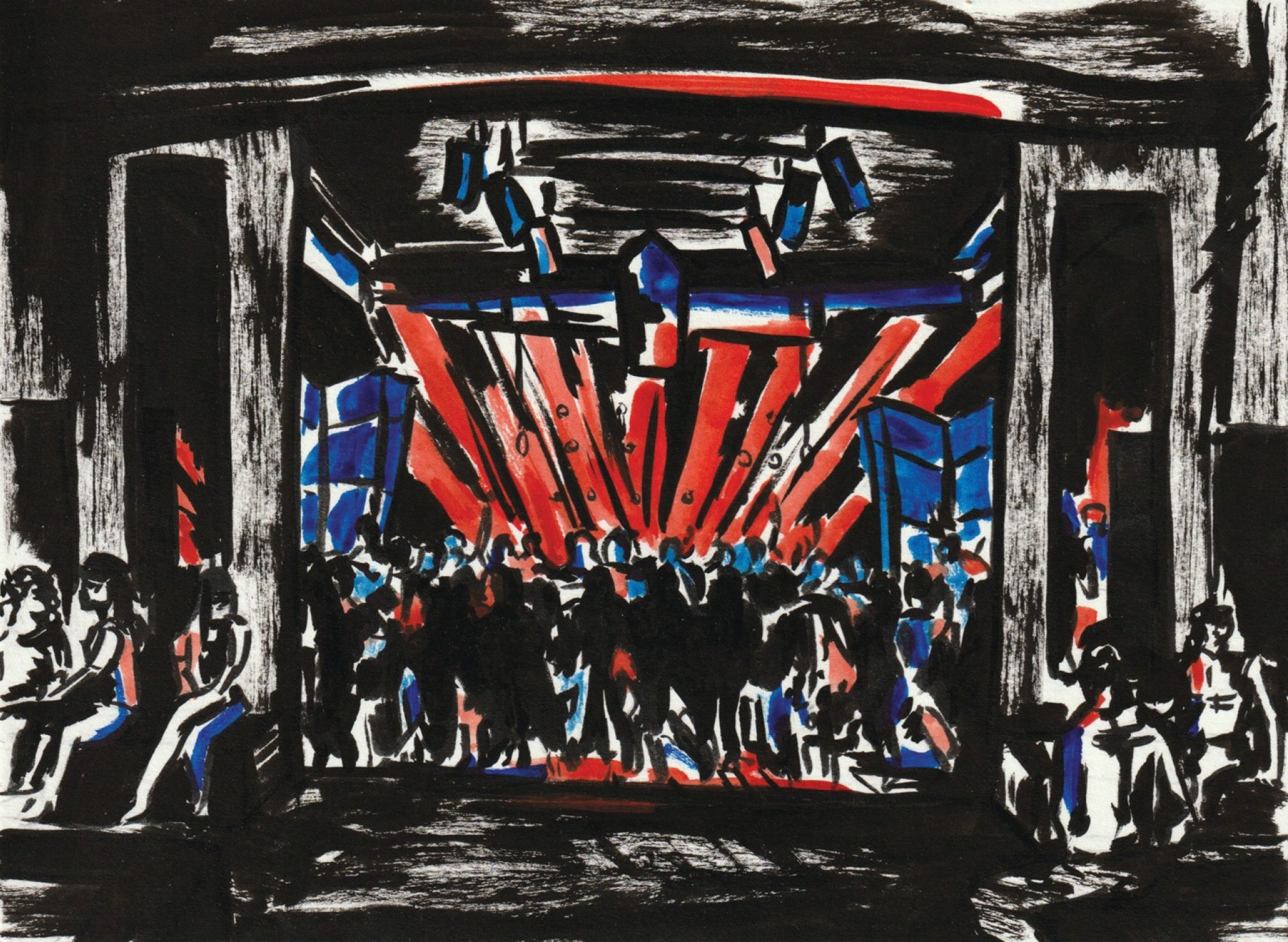
Tresor, kÖpenicker straße 70
Tresor may be known for its caged DJ booth, but when I explored its labrynthian confines I was most struck by the second floor. Globus, as it’s known, is an impressive display of club symmetry. In my sketch I wanted to communicate the cinematic way the dark, concrete entranceway frames a mass of shadowy dancers, all tinted by a background sunburst of orange light. As with all my drawings, the brushwork is rough and done with a quick hand to capture the frenetic energy that electronic music transmits.
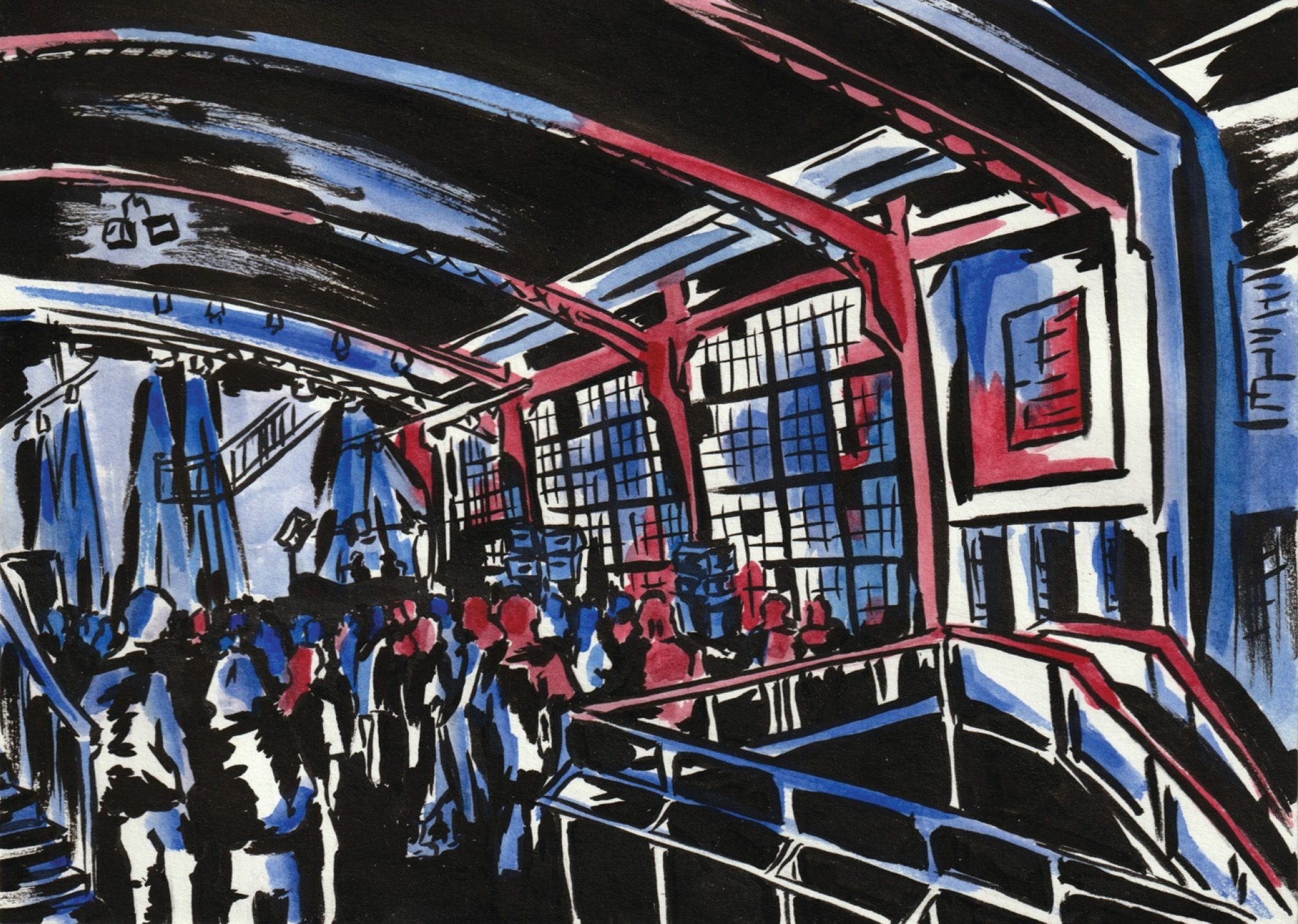
Berghain, am Wriezener bahnhof
As a club that operates in extremes (the power to humiliate or validate at the door, draconian entry policies but an anything-goes dancefloor, either loved or feared), Berghain is all blue and red. The colours convey the stark contrasts between these aloof, rather antisocial tendencies, and the familiar hedonism that keeps tempting patrons back for more. Architecturally, I wanted to capture Berghain’s most recognizable features: cavernous ceilings and a wall of paned windows reminiscent of a church interior.
Whitney Wei is a freelance writer and illustrator, follow her on Twitter and Instagram

